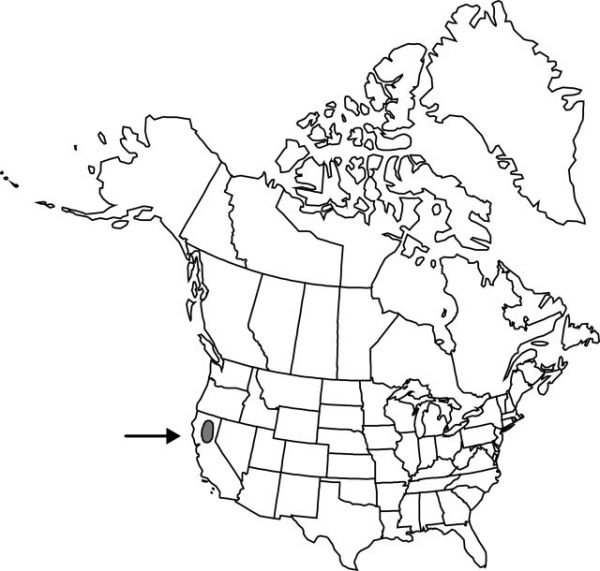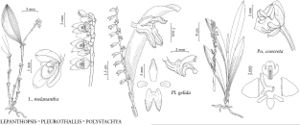Difference between revisions of "Monochoria vaginalis"
Reliq. Haenk. 1: 128. 1827.
FNA>Volume Importer |
FNA>Volume Importer |
||
| Line 14: | Line 14: | ||
|name=Monochoria plantaginea | |name=Monochoria plantaginea | ||
|authority=(Roxburgh) Kunth | |authority=(Roxburgh) Kunth | ||
| − | }}{{Treatment/ID/Synonym | + | }} {{Treatment/ID/Synonym |
|name=Monochoria vaginalis var. pauciflora | |name=Monochoria vaginalis var. pauciflora | ||
|authority=(Blume) Merrill | |authority=(Blume) Merrill | ||
| Line 32: | Line 32: | ||
|elevation=0–200 m | |elevation=0–200 m | ||
|distribution=Calif.;Asia (India;China;Japan;and Malayan Islands). | |distribution=Calif.;Asia (India;China;Japan;and Malayan Islands). | ||
| − | |discussion=<p>By the 1970s, Monochoria vaginalis had become part of the rice-field flora of California (S. C. H. Barrett and D. E. Seaman 1980). C. D. K. Cook (1989) described this species as characteristic of rice fields; however, no records are known from the rice fields of Missouri to Louisiana.</p><!-- | + | |discussion=<p>By the 1970s, <i>Monochoria vaginalis</i> had become part of the rice-field flora of California (S. C. H. Barrett and D. E. Seaman 1980). C. D. K. Cook (1989) described this species as characteristic of rice fields; however, no records are known from the rice fields of Missouri to Louisiana.</p><!-- |
--><p>As is typical of many aquatic annuals, plant size, leaf shape, and flower number are highly variable in relation to the amount of water (C. D. K. Cook 1989). Specimens from California typically have three to eight flowers, while descriptions of those from other parts of the world (H. Aston 1977; C. D. K. Cook 1989) suggest that the inflorescences of this species may have up to 20 flowers.</p> | --><p>As is typical of many aquatic annuals, plant size, leaf shape, and flower number are highly variable in relation to the amount of water (C. D. K. Cook 1989). Specimens from California typically have three to eight flowers, while descriptions of those from other parts of the world (H. Aston 1977; C. D. K. Cook 1989) suggest that the inflorescences of this species may have up to 20 flowers.</p> | ||
|tables= | |tables= | ||
| Line 58: | Line 58: | ||
|publication year=1827 | |publication year=1827 | ||
|special status= | |special status= | ||
| − | |source xml=https://jpend@bitbucket.org/aafc-mbb/fna-data-curation.git/src/ | + | |source xml=https://jpend@bitbucket.org/aafc-mbb/fna-data-curation.git/src/8f726806613d60c220dc4493de13607dd3150896/coarse_grained_fna_xml/V26/V26_3.xml |
|genus=Monochoria | |genus=Monochoria | ||
|species=Monochoria vaginalis | |species=Monochoria vaginalis | ||
Revision as of 17:43, 18 September 2019
Flowering stems 8–16.5 cm, distal internode 3–15 mm. Sessile leaves up to 5 cm, blade linear, apex acuminate. Petiolate leaves: stipule 3.5–5.7 cm; petiole 7–28 cm, rigid; blade cordate, 4–8 × 1.8–5.2 cm. Inflorescences paniculate, 3–8-flowered, all flowers opening same day; spathes 1.9–4 cm, sometimes with lanceolate to ovate extension. Perianth: limb lobes blue or white, narrowly ovate, 10–14 mm; larger stamen with hook, 4–6 mm, shorter stamens 3–4 mm; filaments linear, glabrous; style glabrous. Seeds 10–11-winged, 0.8–1.2 × 0.4–0.6 mm.
Phenology: Flowering (Jul–)Sep–Oct.
Habitat: Rice fields, ephemeral ponds
Elevation: 0–200 m
Distribution

Calif., Asia (India, China, Japan, and Malayan Islands).
Discussion
By the 1970s, Monochoria vaginalis had become part of the rice-field flora of California (S. C. H. Barrett and D. E. Seaman 1980). C. D. K. Cook (1989) described this species as characteristic of rice fields; however, no records are known from the rice fields of Missouri to Louisiana.
As is typical of many aquatic annuals, plant size, leaf shape, and flower number are highly variable in relation to the amount of water (C. D. K. Cook 1989). Specimens from California typically have three to eight flowers, while descriptions of those from other parts of the world (H. Aston 1977; C. D. K. Cook 1989) suggest that the inflorescences of this species may have up to 20 flowers.
Selected References
None.
